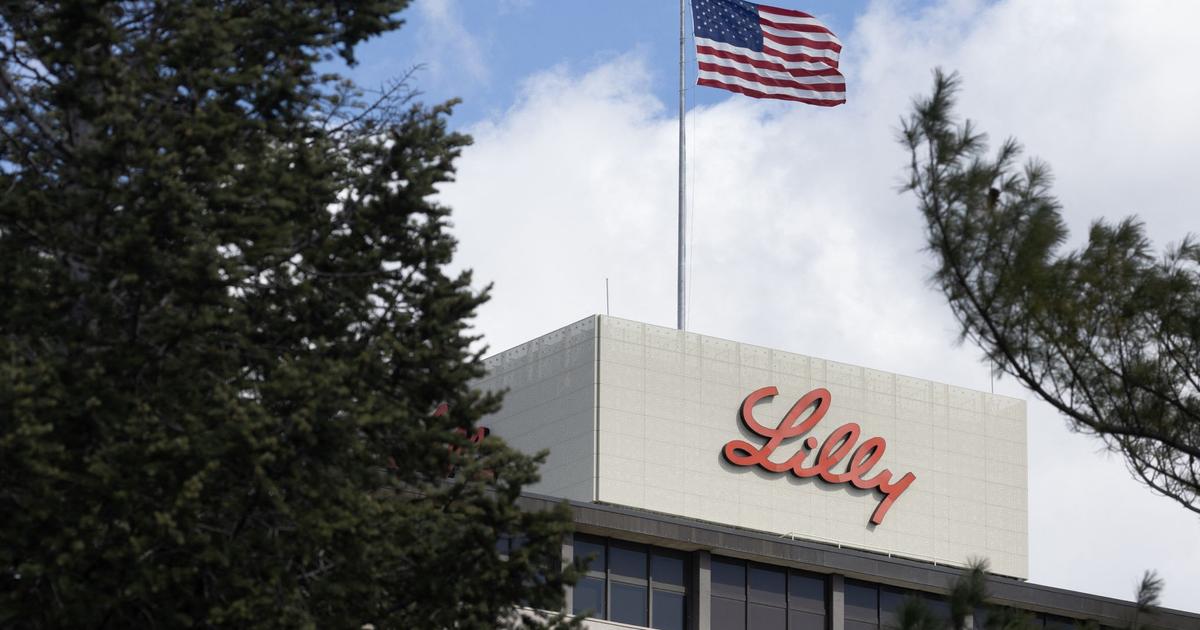Do you know the man who
scared
Amazon boss
Jeff Bezos
(57)? And so sustainably that Bezos tried ten years ago to turn off the money tap?
Tim Steiner
(51) is the name of the man who founded the successful British food delivery service Ocado. Bezos successfully screwed up the IPO in 2011, but Ocado is now worth around 15 billion euros on the stock exchange - and continues to be aggressive. Ocado has achieved what food discounters and delivery services such as Gorillas or Flink can only dream of today: To earn money with the delivery of groceries.
Steiner's secret of success: In his logistics centers, robots push the individual goods back and forth in a matter of seconds.
The sorting is done by machines, the packing into the bags is done by humans - for the time being.
In order to keep up with the speed of the new, highly deficient express delivery services and to deliver its own products even faster, Steiner has now improved its system again.
Competitors such as Delivery Hero or Doordash are likely to ponder that 16 percent of groceries are already being sold online in Great Britain.
My colleague Jonas Rest describes the man who cracked the code of the delivery business - and is now revolutionizing the grocery trade.
The economic news of the day:
When Manfred Krug advertised the T-share in 1996 and millions of Germans grabbed the "people's share", most Telekom shareholders faced a long, long ordeal. Subscribers to the third tranche from 2000 (don't look: 66.50 euros per share!) Are still sitting on high losses and could only comfort themselves with the annual dividend. But now Telekom boss Tim Höttges has the main business of
Deutsche Telekom
relocated to the USA - and thanks to T-Mobile, profits are steadily increasing. Today Höttges announced an increase in the dividend (to 64 cents per share). Incidentally, Telekom achieved the highest profit of all 40 DAX companies in the third quarter, making it the profit leader ahead of Allianz. Höttges is proving to be a real transformer, which is why manager magazin named him Manager of the Year back in January. And our headline in today's stock market report - "T-Share drives Dax to record high" - sounded so seductive after 1999 and Manfred Krug that we just couldn't resist.
It was the week of the splitters. On Tuesday, the US industrial
giant
and Siemens competitor
General Electric announced
that it would be divided into three sectors: energy, aviation and medical technology. Investors were thrilled. Then Japan's tech giant
Toshiba
bowed to
shareholder pressure and announced that it would form three publicly traded companies by 2023 (core business with printer, energy and digital business, and semiconductor business). And US consumer goods giant
Johnson & Johnson
followed on Friday
, who is outsourcing the business with over-the-counter consumer goods such as plasters, mouthwashes and baby powder to its own company in addition to the much larger pharmaceutical division. In doing so, the corporations are following the motto that the sum of the various parts is not worth more than the individual parts - on the contrary, the individual divisions are valued higher on the financial market than the large, allegedly clumsy conglomerate. The DAX companies
Siemens
and
Bayer
were also able to embrace this zeitgeist
Not withdrawn: Siemens, as is well known, floated Siemens Healthineers and Siemens Energy, and Bayer, with Lanxess and Covestro, sent two former chemical divisions on their own.
My colleague Angela Maier had already shown that the Swiss Siemens competitor ABB can also serve as a warning example for Siemens.
The worldwide raging divisive disease is likely to bring forth some newcomers to the stock market in the coming months: It has not yet been confirmed whether Johnson & Johnson will ultimately become two individual parts named Johnson and Johnson.
Take a deep breath at
Lufthansa
: The airline has repaid the high-interest direct state aid to the federal government in full.
This opens up new scope for the airline.
Personal details of the day:
His "Peanuts" statement is legendary, he was a man of clear words.
On Thursday, the former head of Deutsche Bank, Hilmar Kopper, died at the age of 86, as it became known on Friday.
As head of Deutsche Bank and chief supervisor of the car manufacturer Daimler, Kopper was a veteran of Deutschland AG.
You do
n't
know
Sara Blakely
(50)?
Then they are neither on the social networks nor do they attach great importance to figure-shaping underwear.
My colleague Marleen Gründel brings you closer to the "Spanx" founder, who not only caused a sensation with a 10,000 dollar check for every employee, in a detailed portrait.
The best of the "Economist":
Scarlett Johansson
has sued streaming giant Disney. The Hollywood diva feels underpaid. The case sheds light on how fundamentally streaming services such as Disney, Amazon and Netflix are changing the film business: The flood of money from the big three delights film studios and most employees in Tinseltown, but the big stars like Johansson feel that they have been tricked. The Economist colleagues explain why this is so in the original article: How Hollywood's biggest stars are losing their clout.
And if you are already in
full swing
after reading the above English text
, treat yourself to an illuminating article about the crypto scene.
There, start-ups like the FTX crypto exchange are pumped up with as much money as if they were the next Google.
We already reported this week about the record run of Bitcoin and avowed Bitcoin fans like influencer Julian Hosp - in addition, the Economist is investigating the question of whether the hype has what it takes to launch the next tech giant.
My recommendation for the evening:
The evenings will be long and dark, and in six weeks it will be Christmas Eve: time to take a close look at the wine cellar.
With a bit of luck you will find a Pinot Noir or a cuvée from young winemaker
Domenic Amat Kreft
(25): The vine rebel rents into foreign vineyards and
doesn't care about classic winemaking methods
.
His wine only ferments with the help of the "wild" yeasts that are naturally found on the skin of the berries.
Even after fermentation, the grapes are not pressed in the classic way, but pressed by hand: With this method, the wine contains extremely few tannins.
The result is sensational, judges my colleague Michael Kröher.
He thinks wine lovers should give the products of Weinpunks a chance.
Sincerely, Kai Lange










/cloudfront-eu-central-1.images.arcpublishing.com/prisa/KMEYMJKESBAZBE4MRBAM4TGHIQ.jpg)



